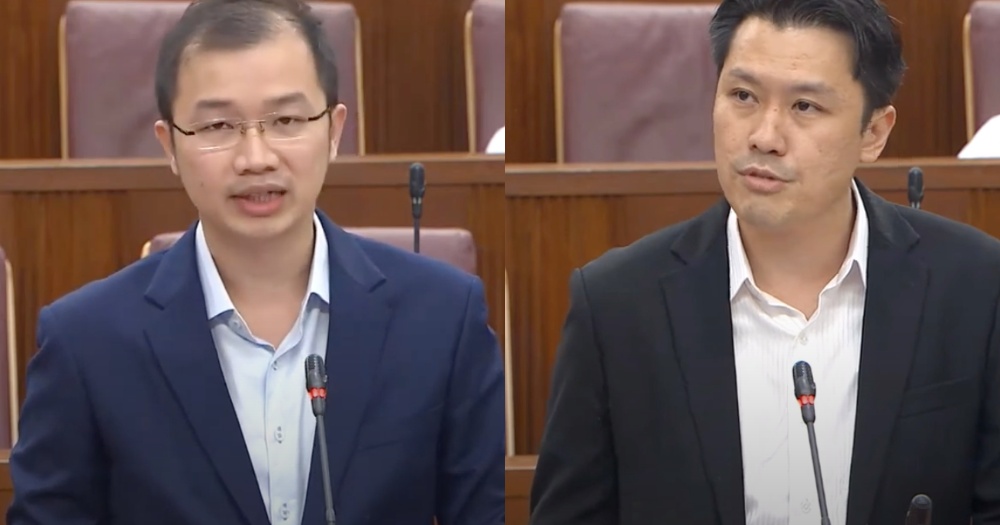The government should not be "overzealous" in strengthening its revenue position, such as using a regressive tax like the Goods and Services Tax (GST), given the "macro economic uncertainties" of today.
This was said by Workers' Party (WP) MP Louis Chua, speaking during the Budget 2021 debate on Wednesday (Feb. 24).
A regressive tax refers to a tax that is applied uniformly across the board, which results in taking a larger percentage of income from low-income earners than from high-income earners.
On the other hand, a progressive tax is the opposite, taking a larger percentage from high-income earners.
There was a consistent cash surplus between 2011 to 2019
Chua noted that the government ran expansionary budgets in 2021 and 2020, with deficits to tackle the economic impact of Covid-19.
However, the Sengkang GRC MP pointed out that the government accumulated a cash surplus from 2011 to 2019 for a total of S$261 billion, according to official data from the Department of Statistics.
In other words, the government runs a surplus of an average of S$29 billion a year, between 2011 and 2019, he said.
Chua said that the government's push to raise GST "sooner rather than later", as said by Deputy Prime Minister Heng Swee Keat, and the statement that "rising recurrent needs" can't be met without the GST hike, should be framed in the context of the government's consistent recurring cash surplus prior to the Covid-19 pandemic.
Furthermore, Chua noted that the NIRC contributions are expected to continue its steady path of increase, from $17 billion in 2019 to $18.1 billion in 2020 and $19.5 billion in 2021.
Chua concluded that Singapore needs to "caution against being overzealous" in strengthening its revenue position, through multiple pathways such as the impending GST hike, amidst the Covid-19 pandemic.
GST is regressive, but important to look at the full picture
In response to Chua, People's Action Party (PAP) MP Shawn Huang said that while the GST alone is a regressive tax, it is important to look at the full picture.
"Is GST a regressive tax? Yes, it is. Standalone, only without intervention. GST forms part of Singapore's overall tax and benefit system, which is progressive. "
He brought up the fact that the government "redistributes taxes and revenues through a progressive system of tax and transfers".
Schemes such as the S$6 billion Assurance Package will delay the impact of the impending GST hike for the lower and middle-income classes for at least five years.
Huang also said that additional assurances will ensure that when the GST is increased on healthcare and education, these increases will be absorbed by the government, further buffering the people from the effects of the impending GST hike.
Chua suggested wealth taxes as an alternative
Chua later offered a clarification to Huang's comments, acknowledging that the Assurance Package "does go some way" to offset the GST hike for lower and middle-income families for between five to 10 years.
However, he said that the "reality of the higher GST" will still apply to these families "for the rest of their lives".
Chua said that the current tax system has both progressive and regressive elements, and suggested wealth taxes as an alternative to a GST hike, should a raise in taxes be necessary.
In her own speech earlier in the day, PAP MP Foo Mee Har suggested that a one-off wealth tax, structured as a one-off exceptional response to the pandemic, could be economically efficient.
She noted that this one-off "windfall tax" was introduced in the United Kingdom in 1997.
The West Coast GRC MP has spoken about wealth tax on numerous occasions in parliament.
Top image via MCI/YouTube.
If you like what you read, follow us on Facebook, Instagram, Twitter and Telegram to get the latest updates.

